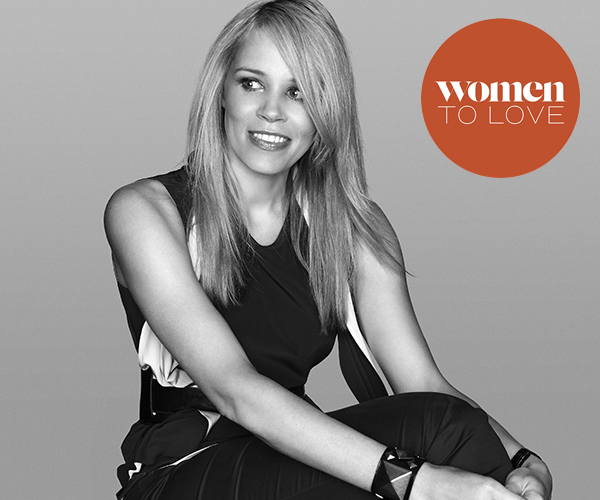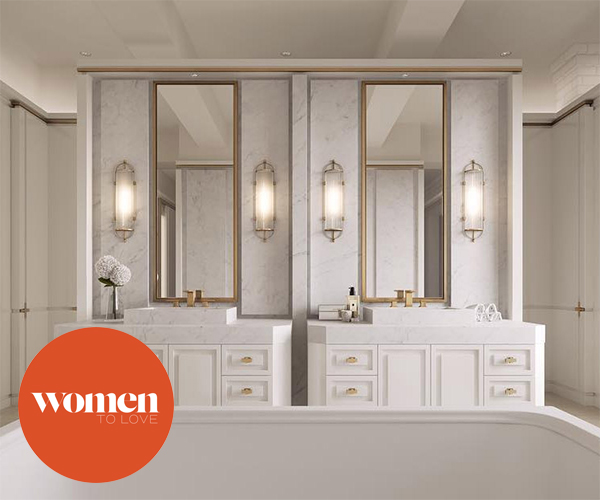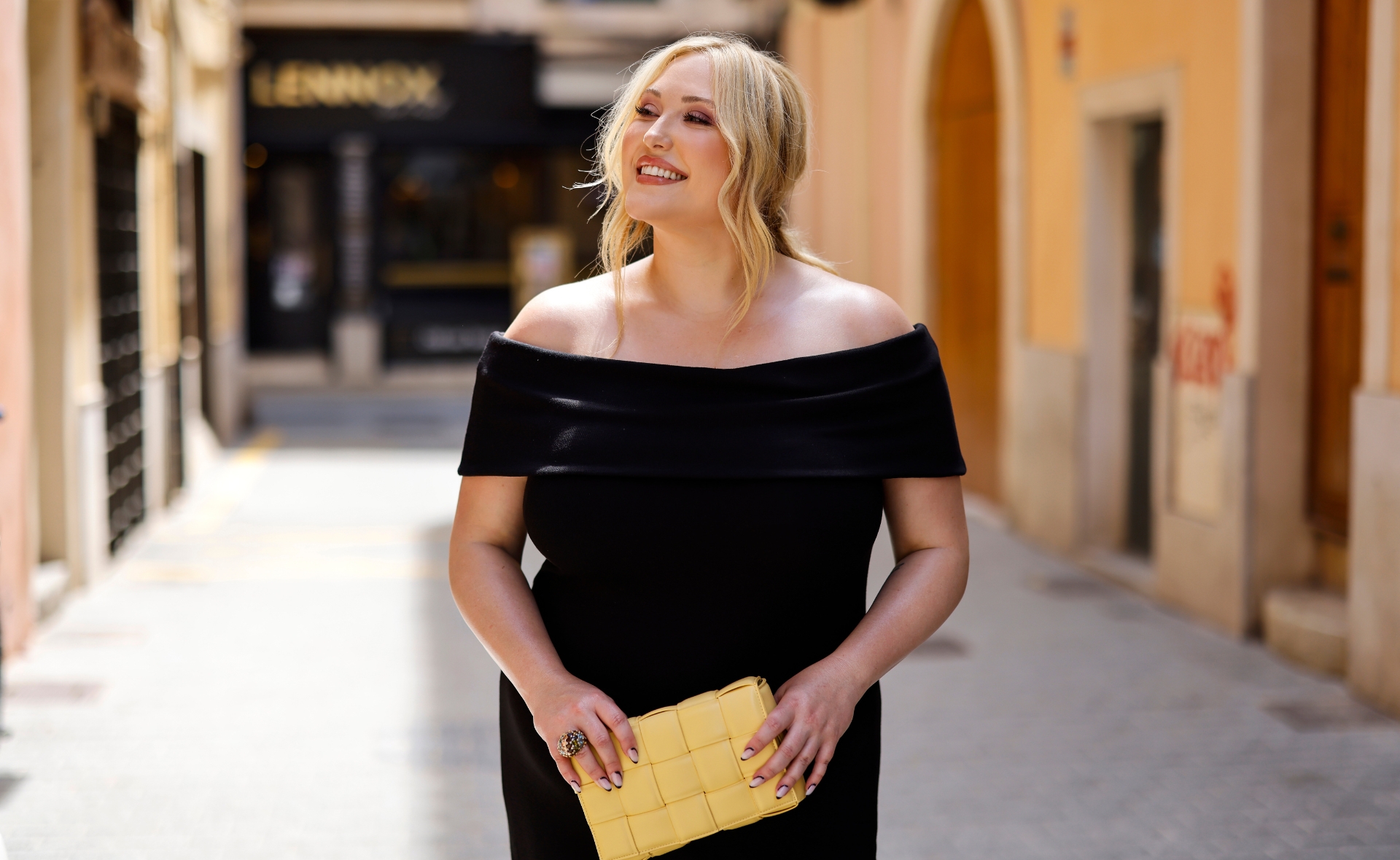If you’re a fan of modern interior design and architecture, chances are you’ve probably heard of the name ‘Blainey North,’ once, twice or a thousand times.
Since starting up her business at the age of 21, Blainey has completed projects like the Conservatory at Crown Towers in Melbourne, Crown Metropol Perth, and a smattering of hotels and super-yachts here and there. Add a few high-profile awards, and showrooms in Sydney and London, and you’ve got yourself a recipe for major success.
We caught up with Blainey to talk industry starts, must-have advice, and what it’s like being the only woman on the workforce.
What was your first ‘light-bulb moment’ with architecture and interior design?
When I was in primary school, I did art but I was hell-bent on being a lawyer. And my art teacher – after about three or four years – said to me, “Have you considered architecture?” Everyone else in the class was doing still life and portraiture, and I’d been drawing bridges, and stairs, and buildings. It was a light-bulb moment, where I went, ‘Oh, of course!’
So, you were always interested in architectural design from day one?
In my youth, we travelled and lived in London. Before we’d go, I’d get the dimensions of my room and plan out all the furniture in my bedroom. When I’m looking around, day to day, the things I notice are buildings, light, detail… I could tell you, from my childhood, intimate details of hotels, or places I’ve been. Whereas someone else might remember people they met or things they did, I remember environments that I’ve been in. I realised at that moment that the way I see the world is a bit different to the way other people see the world.
When I first started studying, that first lecture I went to about the history of architecture. I remember sitting there, with my whole body tingling and thinking, ‘This is it.’
Architecture is still quite a male-dominated industry, how do you think that should change?
Certainly, I would say the construction industry is a male-dominated industry. Even still, I’ll be the only woman on the building site. Within a larger production team – that’s a team of consultants, engineering, air conditioning, fire servicing, plumbing – I’m usually the only woman who will be in that meeting. There are more women coming into the construction environment, but they’re still in the vast minority. I think that it’s important that that changes.
The construction environment is a tough environment for women, because there are not a lot of women there. You have to prove yourself more, as woman. You’re put to the test at a different level than men, initially, until you’ve proven yourself. For me, that’s part and parcel in life. I know that when I enter into a new construction environment, I’ll have to prove myself. Sometimes that can be a great thing, because it pushes you.
Being such a male-dominated industry, have you experienced sexism at work? How did you deal with it?
It’s that feeling that you have to show someone that you’re capable of doing the job. It’s something I feel – in certain cases – if I was a man, it wouldn’t be required. It makes you more determined to prove that you do know what you’re doing. A lot of women experience sexism in the workforce. I’ve had my business for 18 years now, and that’s been part of the environment for that time.
But it’s exciting now to see the culture and the environment changing. I’m sure most business-women would agree that it’s an exciting time.
Is there a moment that you have been most proud of during your career?
I always feel that the project that I’m working on is always the most exciting. There are so many little things that happen along the way that you think are amazing. Last year, we won two massive international awards, ‘2017 Residential £40 Million Plus’ and ‘2017 Residential £15 Million Plus’ [at The International Design & Architecture Awards]. But at the same time, doing a tiny project and making the client really happy every day, is amazing. When someone says, five years later, ‘Your space still makes me feel wonderful.’ I feel really proud of that.
If you could go back in time and give a piece of advice to your 13-year-old self, what would it be?
I think it would be, ‘Trust in your instincts.’ The thing I love about what I do is that part of it is very instinctual and artistic, and then part of it is very rational, logical, and process-driven. I enjoy that left-right brain combination. I think your instinct is often the thing you should be following.
Is that the same advice you would give to a young woman wanting to break into architecture?
It is. I think you know, inside yourself, if it’s the right thing for you. If you have a great passion and love for something, than you should be doing it.
Looking back on your career, is there a moment you wished you’d done differently?
So many! Part of life is making a million mistakes, and then learning from them to become a better person. Building is one of those industries where, when you’re constructing something, there’s so many unforeseen things that occur. Mistakes are something that happen on a consistent basis, by everyone. The most important thing in that is not necessarily the mistake, but how quickly you’re able to fix, and recognise, and adapt to that mistake. The faster you anticipate that mistake happening, the easier it is to resolve.
What’s the best piece of career advice you’ve ever received?
I was telling a friend about a challenge I was facing, and he said, “Listen, buck up. You wanted to do this, you wanted to be in business… this is business! You either get on with it, or you suffocate.” In a way, that’s one of the best pieces of advice I’ve ever received. It’s great to realise that challenges are a part of life. Instead of worrying about them, you’ve just got to get on and get going.



.jpg)

